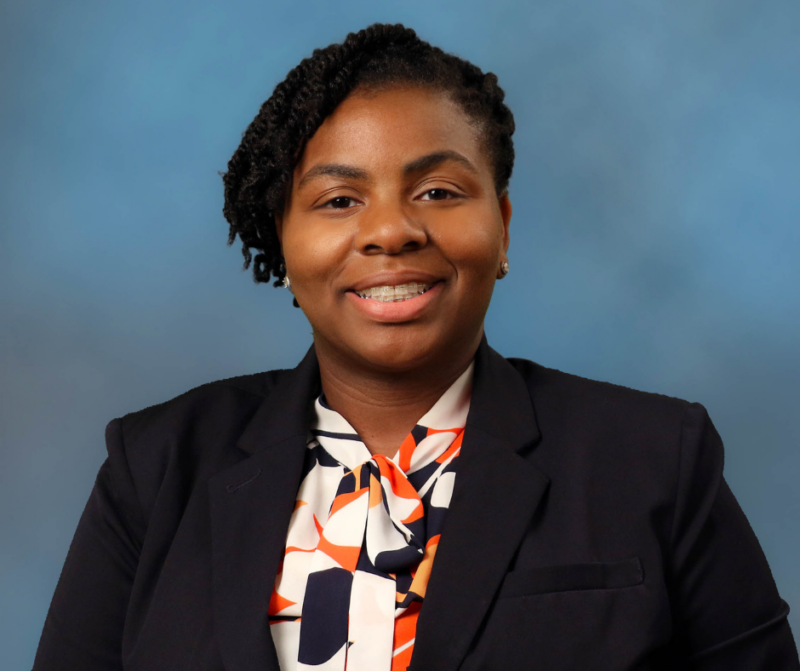Amy Dietz advises World Campus students in the Human Resources and Employment Relations Master of Professional Studies program. Having earned several Penn State degrees while working a full-time job at Penn State, Amy can identify with students’ challenges. We asked her to share some of her experiences and advice for students.
You have a long history with Penn State, both as an employee and student. Can you tell us how it started, and how you got to where you are now?
I started at Penn State in 1996 as a part-time staff assistant in the College of the Liberal Arts. In 1997, I was hired as a staff assistant full-time in the Department of Labor Studies and Employment Relations. While I worked there I completed my associates degree in Letters, Arts, and Sciences, my B.S. in Labor Studies and Employment Relations and my M.S. in Industrial Relations and Human Resources. I was also a graduate of the Schreyer Honors College. I was promoted to a senior administrative assistant in 2002. After completing my masters, I was offered a faculty position in the Department of Labor Studies & Employment Relations. I teach online, am the advisor for the HRER graduate program, the on-line program administrator for LER, OLEAD and HRER, and am the internship coordinator. I am also the faculty advisor for the student organization, Society of Labor & Employment Relations (SLER).
You finished your degrees while working. Does this help you understand the challenges that many students (especially adult students) face when juggling work, school and family responsibilities?
Absolutely. I started college in 1996 and did not finish until 2006, taking a class every semester while raising two children. I worked full-time and was a Girl Scout leader. I was very involved in my children’s activities. But I did not have a social life nor did I watch very much TV. I was focused on work, school and family. I remember writing late into the night or getting up very early to study. I would visualize walking across the stage at graduation when I felt I just had no more energy to keep going. I also focused on the class I was in rather than allow myself to get overwhelmed by how many more credits I had to complete. That helped a lot. I understand the juggling of multiple priorities and how curve balls happen out of our control. Children get sick, emergencies occur, one can prepare the best they can by working ahead of due dates, but still life happens that can throw everything off. Once I had an emergency appendectomy and grabbed my school text books on the way to the hospital. My instructor changed my group presentation to the last spot so I had a chance to recover and prepare. I really appreciated that.
What were the biggest challenges you faced as a working student?
I was always in a time crunch. I had a busy job and often worked 50 hours or more a week. My family needed me to be present and engaged and school wasn’t about just passing a course for me but immersing myself in the course. Those were my three priorities (work, family, school) so I let other things fall by the wayside, such as my social life, a clean house, and unfortunately, I did not take care of my health. I gained a lot of weight and didn’t exercise during these years that I spent sedentary in my job and school work. I was careful to not push the needs of my family to the background or seem impatient even if that meant a lot of burning the candle at both ends. But it was very hard. However, both of our children saw me value a college education and embraced it as well. Our son graduated in material science and engineering in 2010 at the top of his class, and our daughter just finished her freshman year making the Dean’s List. They realized that it is much easier take on college earlier rather than later in life when other priorities compete for time and resources.
Can you describe your current position and how you work with students?
I work with students every day in all sorts of ways. Students meet with me about finding internships or job opportunities, I advise graduate online students about the HRER MPS program, and I am the faculty advisor for the student organization. Last spring break, ten students and I traveled to alumni sites in Pittsburgh, Cleveland and Chicago to learn about different careers in Labor Studies. We had a wonderful time and even got to see open heart surgery at the Butler Hospital, thanks to one of our alums who arranged the visit.
Anything else you’d like to share from your unique perspective of working your way up at Penn State while also earning your degrees?
When I started out, I wanted to be a Penn State alumna and to have a job where I needed a degree. In my mind, this meant a job in Human Resources. But along the way others saw potential in me that I did not see nor was aware of in myself. My department head suggested that I continue on for a masters, something very scary to me at the time. Another faculty member approached me about applying to the honor’s college. I really did not feel capable of writing a thesis but others did and I trusted that they would know if I could or not. Then, when it came to my career, I was focused on one path. But the Dean of the College of the Liberal Arts suggested to our Department Head a faculty position for me. My department head had to convince me that I might thrive in this role and do well at teaching since I had such a passion for the subject. My advice is to trust those who see great things for you and don’t let the hurdles that arise keep you from striving for them. I had disappointments also. I was interviewed for 20 jobs during this time that I did not get, but I just told myself that the right one will come along and the rejections were just protecting me from a bad fit. Many times I have students who do not realize the talent they possess and are very surprised when I tell them about their critical thinking skills or gift for writing. We don’t know where the degree will lead us, but with a degree we are prepared when opportunity comes along.



